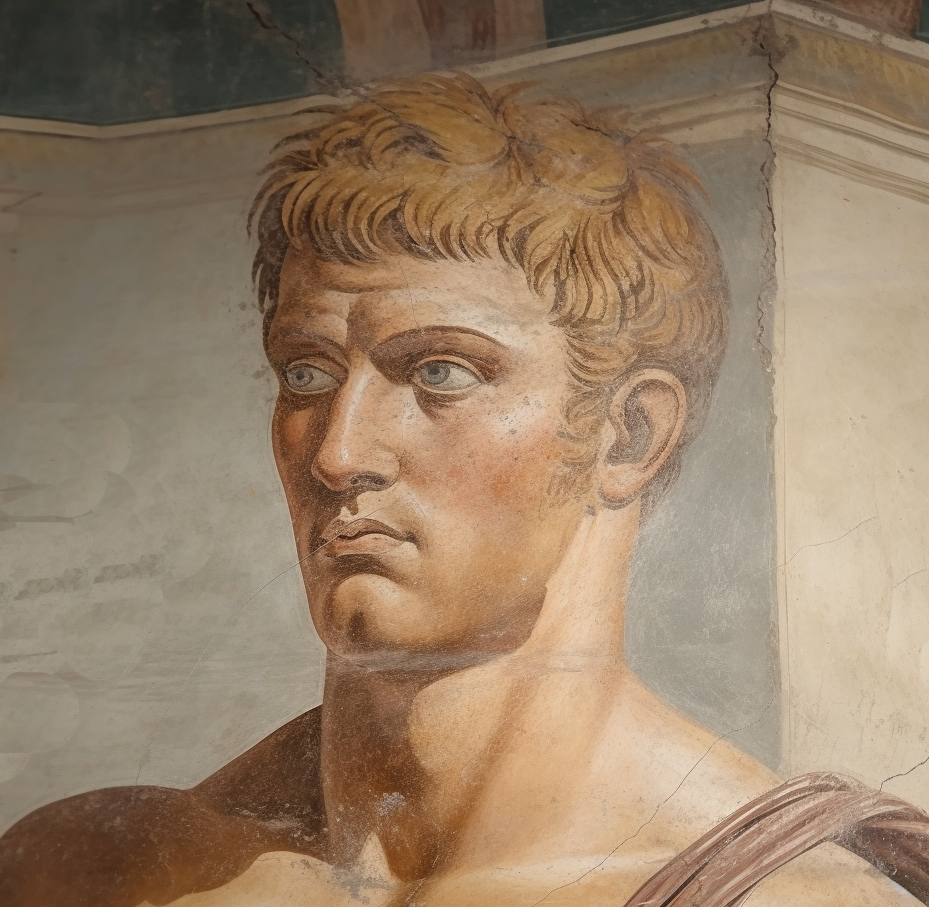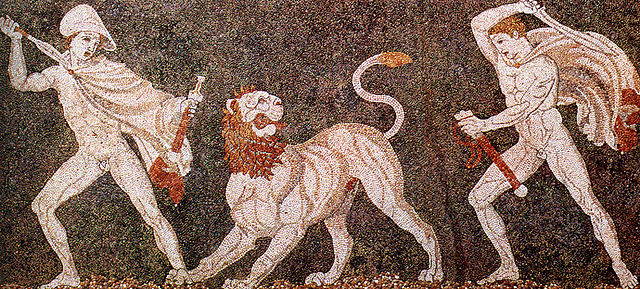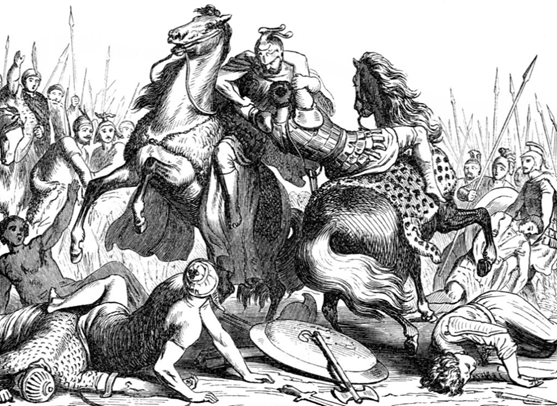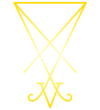Craterus
Right Hand of Alexander

Craterus was one of the most illustrious generals under Alexander the Great and his dearest friend, second only to Hephaestion.
He occupies a special place in ancient Greek military history. Though overshadowed in modern discourse by more famously mentioned Companions such as Hephaestion, Parmenion, Perdiccas, and the Diadochi, Craterus was no less vital to the success of Alexander’s campaigns.
To the soldiers in Alexander’s army, he served as a straightforward, stalwart commander, deeply committed to practical military matters. For Alexander himself, he was more than just a skilled officer; he was, by many accounts, his most strictly valued friend and confidant.
EARLY LIFE
Craterus was born in the region of Orestis in 362 BCE, to a nobleman of high military pedigree, curiously, also named Alexander. He was several years older than the king he would come to serve. Although little is definitively known about his early life from the surviving sources, he hailed from a noble Macedonian family linked to influential aristocratic networks at the court of Philip II, Alexander’s father.
During Philip II’s reign, the Macedonian kingdom underwent a dramatic transformation, evolving from a relatively obscure monarchy of disparate settlements into a formidable military power with an urban reorganization. Young Macedonian nobles were trained in leadership, political acumen, and the loyalty that bound officer to king. Craterus exhibited remarkable talent in all these areas, making him a unique youthful prodigy.
He caught the eye of the king, but before that, he had been approached by the much younger Alexander, who saw him as a role model and persistently followed him around. This placed him in a difficult position between Philip and Alexander, who were often at odds, and also in the vexing role of mentor to the heir to the throne. In other words, he was superior in age yet inferior in rank, an unusual dynamic in Greek social structure.
Philip II’s reorganization of the Macedonian army introduced the formidable Macedonian phalanx. Although Craterus was too young to be a leading figure during Philip’s major conquests in Thrace, Thessaly, and elsewhere, he acquired hands-on experience as a junior officer. Many sources portray Craterus as older than he actually was, due to his early rise to senior command, highly unusual for Greek military standards.
The cohesive environment crafted by Philip ensured that able commanders like Craterus and Hephaestion would play direct, influential roles in the campaigns that followed. By the time Philip II was assassinated, Craterus had begun building the reputation that would secure his place in Alexander’s retinue.
ALEXANDER’S CAMPAIGN
Alexander’s invasion of the Persian Empire commenced with the crossing of the Hellespont. Craterus was part of the senior officer corps that accompanied him. The early stages of the campaign, marked by the battles at the Granicus River and Issus, featured many Macedonian commanders who would later achieve historical fame. In the surviving ancient accounts, Craterus is noted as occasionally commanding sections of the infantry, demonstrating leadership that reflected a deep trust between him and Alexander.
The significance of Craterus’s contributions emerged more clearly over time. After Alexander’s decisive victory at Issus, the Macedonians seized control of Phoenicia and Egypt before advancing into the heart of the Persian Empire. During these prolonged conflicts, the loyalty and skill of this brave Companion shone. Alexander frequently delegated tasks of considerable magnitude and complexity to his friend, ranging from besieging dangerous strongholds to securing supply lines.
While Hephaestion often interceded with foreign leaders on Alexander’s behalf, Craterus did so among the Companions and Greek officers. In this role, he became a steady presence, building a reputation for inspiring discipline among the rank and file and for consistent success in crucial missions. This conservative nature also explains his opposition to some of Alexander’s reforms in Persia.
GAUGAMELA
One of the hallmarks of Craterus’s career was his capacity to manage complex tasks under pressure, typically in alignment with Alexander’s broader strategic aims. While ancient sources often focus on Alexander’s brilliance in orchestrating ambushes, cavalry charges, and siege tactics, these feats were seldom performed by Alexander alone.
At the Battle of Gaugamela, the decisive confrontation with Persian King Darius III, Craterus played a vital role. Historical accounts by Arrian, Curtius Rufus, and Diodorus Siculus describe the complexity of the Macedonian deployment under his guidance. Alexander commanded the right wing, Parmenion the left, and Craterus held a central section of the line, ensuring that the phalanx and supporting units were neither overextended nor outflanked, an essential element in the battle.
Although overshadowed in narratives by Alexander’s dramatic cavalry charge against Darius III, Craterus’s steady leadership during the subsequent fighting contributed greatly to the favorable outcome of this storied and precarious battle. His consistency allowed Alexander to risk bold maneuvers at critical moments, knowing his subcommanders were dependable.
SECURING THE EMPIRE
Craterus’s first independent command came when Alexander tasked him with securing the heights where the Uxii were expected to retreat. After this success, Alexander began entrusting him with greater responsibilities. During the engagement at the Persian Gate, Craterus was ordered to hold the camp and launch an assault once he heard the trumpet signal. While Alexander’s detachments circled the gorge and attacked from the rear, Craterus launched a frontal assault that threw the Persians into disarray and sealed their defeat.
Following the capture of Persepolis, Craterus and Parmenion led the main army and baggage train for thirty days, while Alexander advanced deeper into Persia with a smaller force. Later, Alexander took Craterus with him on campaign from Ecbatana to the Caspian Gates. When an opportunity arose to overtake Darius III, Alexander selected his swiftest warriors and left Craterus in command of the remaining army. In Hyrcania, Alexander divided his forces into three parts, one of which was entrusted to Craterus, who advanced toward the lands of the Tapuri along the southern Caspian coast.
Alexander then turned his focus eastward, toward the satrapies of Bactria and Sogdiana, regions roughly corresponding to modern Afghanistan and Central Asia. Here, the warfare shifted from pitched battles to guerrilla tactics and sieges in rugged terrain. These campaigns tested every Macedonian general’s ability to command in unfamiliar, hostile territory.
Craterus’s star rose even further during these eastern campaigns. He proved invaluable. In addition to commanding both cavalry and infantry, he occasionally served as a logistician, coordinating supply lines, linking scattered Macedonian columns, and forging alliances with local tribes. While ancient sources vary in their details, they agree on one point: Craterus was consistently entrusted with independent command far from Alexander himself, a clear sign of the king’s immense faith in him.
ALEXANDER AND HEPHAESTION
Among the most discussed aspects of Craterus’s life in modern scholarship is his antagonistic dispute with Hephaestion. At one point, the two men came to blows and drew their swords in anger. Alexander, rushing to the fore, demanded they stand down, or he would remove them both personally. They never argued again.
Arrian claimed that the Macedonian king considered Craterus “the most faithful... and treasured him more than his own eyes.” It is important to note that neither of the rivals betrayed Alexander, while many others did.

Nevertheless, to reduce Craterus’s importance to that of merely a “military friend” is an oversimplification. Alexander’s empire required not just victories in battle but also the integration of conquered peoples, the establishment of administrative systems, and a delicate balancing of the desires of the Macedonian rank-and-file with Alexander’s aspirations for cultural fusion. Craterus was generally seen as a champion of the Macedonian officer class, resistant to some of Alexander’s attempts to adopt Persian court customs. This put him in subtle opposition to Hephaestion, who appeared more amenable to Alexander’s policy of “fusion” between Greeks, Macedonians, and Persians.
The tension between Hephaestion and Craterus came to a head on at least one occasion, compelling Alexander to step in and remind them both of their responsibilities. The sources claim that Alexander’s intervention forced both men never again to raise either tongue or sword against each other. No lasting rift appears to have developed that imperiled Macedonian unity, and both generals maintained their positions of trust until Hephaestion’s untimely death in 324 BCE.
INDIA
As Alexander pushed farther east, culminating in the grueling campaigns in India (modern-day Punjab region), Craterus solidified his standing as one of the most vital cogs in the Macedonian machine. The Battle of the Hydaspes River (326 BCE) against King Porus tested Alexander’s army in a new environment: monsoons, swollen rivers, war elephants, and unfamiliar terrain all contributed to a formidable campaign. This confrontation is often singled out as one of the masterpieces of Alexander’s military career, but it was a masterpiece realized through meticulous planning and strong subordinate leadership. Craterus played a key role in the crossing of the Hydaspes and in following up with timely cavalry charges or supportive infantry movements when needed.
After the Hydaspes and the subjugation (or at least partial accommodation) of various local rulers, Alexander’s troops famously mutinied at the Hyphasis River, unwilling to press further into the unknown interior of the Indian subcontinent. Craterus’s stance during this critical episode suggests that he, along with other senior officers, recognized the exhaustion of the army and the limits of Macedonian morale. Although Craterus is not explicitly cited as the leading voice among the discontented soldiers, it is probable he shared their concerns. His rapport with the rank-and-file meant that Alexander considered his viewpoints carefully, even if the king was initially frustrated by his men’s reluctance to advance. When Alexander finally agreed to turn back, the effort to lead the troops home was partially overseen by Craterus. He commanded part of the forces overland, while Alexander took the rest down the Indus River. This division of command highlights the trust Alexander placed in Craterus to return safely with a sizable portion of the army through the rugged Gedrosian desert and back into Persia.
POST-INDIAN CAMPAIGN
Upon returning to the Persian heartlands around 324 BCE, the Macedonians found themselves facing new challenges. These included the politics of integrating Persian nobility into the Macedonian court, the introduction of oriental customs that some traditionalists rejected, and the delicate balance of power among Alexander’s top generals. Craterus’s profile during this period is notable: he was appointed to succeed Antipater as regent in Macedonia, effectively placing him in a position of high authority over the European portion of Alexander’s dominion. The arrangement, however, was never fully realized in Alexander’s lifetime, as a variety of political and logistical issues delayed Craterus’s departure for the west.
While still in the East, Alexander orchestrated mass weddings at Susa in 324 BCE, where many Macedonian officers, Craterus included, married Persian noblewomen as part of Alexander’s campaign of “fusion.” These unions served both political and cultural ends, binding Macedonian officers to the families of the conquered Persian aristocracy. Despite his known conservatism, Craterus complied. He married Amastris, a Persian noblewoman, though ancient sources provide differing details of her lineage. Some accounts suggest she was related to the Persian royal house, underscoring Alexander’s intention to cement alliances through matrimony.
END OF ALEXANDER
Alexander died unexpectedly in Babylon in June 323 BCE, leaving behind a vast empire with no clear and capable adult heir. His death triggered an immediate crisis among his top generals, later referred to as the Diadochi (Successors). Craterus stood at a pivotal juncture during these struggles: he had been recognized as one of Alexander’s most reliable generals and was entrusted, at least nominally, with overseeing Macedonia. But with Alexander gone, the question became: who would hold real power?
The initial solution among the generals was to appoint Philip III Arrhidaeus, Alexander’s half-brother, as king, and later to recognize Alexander IV, the posthumous son of Alexander and Roxana, as co-king. In practice, however, genuine control fell to the regents and influential generals. Perdiccas maneuvered to assume a de facto regency, while Antipater, who had effectively governed Macedonia during Alexander’s campaigns, defended his power base in Europe. Ptolemy seized Egypt and maintained a semi-autonomous stance. Craterus threw his lot in with Antipater and Antigonus, seeking to keep the empire intact, or at least to remain a central figure within the royal administration.
DIADOCHI
In the grand narrative of Alexander’s conquests, Craterus was overshadowed by the unique mystique of Hephaestion, the dynastic claims of Perdiccas, and the later successes of Ptolemy and Seleucus.
Even after Alexander’s death, Craterus’s willingness to defend Macedonian interests in Europe and his swift action against rebellious Greek city-states underscored his commitment to preserving the empire’s stability. Unfortunately, the fractious nature of the Diadochi struggles meant that Craterus, despite his vast talent, would find himself battling former comrades like Eumenes. His demise was emblematic of a broader transition: from the unified era of Alexander’s campaigns to a partitioned, fiercely contested Hellenistic world.
Conclusion
Craterus’s life story embodies both the triumphs and the tragedies of Alexander’s conquests. Rising to prominence under Philip II’s revolutionary military system, he distinguished himself in every major campaign against the Persian Empire. He helped secure victories in crucial battles, from Issus to Gaugamela, the subdued Persian heartlands to the difficult campaigns in Bactria and Sogdiana, and finally in India. Through these ordeals, he became inseparable from Alexander’s successes, offering steadiness and discipline in a world of constant upheaval.
Craterus’s relationship with Alexander was multifaceted, extending beyond mere professional loyalty into personal friendship, though of a different color than the king’s bond with Hephaestion. His position as a champion of Macedonian tradition made him popular among the rank-and-file, counterbalancing Alexander’s more radical attempts to blend Persian and Macedonian cultures. This delicate tension contributed to some friction with Hephaestion, yet neither allowed it to undermine their shared responsibility in forging one of the ancient world’s most expansive empires.

His untimely death at the hands of Eumenes during the early Wars of the Diadochi marked the end of a remarkable military career, a loss that reverberated among his fellow generals.
In hindsight, Craterus may not enjoy the same level of name recognition as Alexander’s more storied companions. Still, the soldiers and historians of the time recognized him as a cornerstone of Alexander’s success. In the end, his legacy is that of a steadfast warrior, a loyal lieutenant, and indeed, as many ancient authors stated, a friend to Alexander in every sense that mattered to the soldiers of Macedon. His life and deeds serve as a poignant reminder that even history’s greatest conquerors lean heavily on the talents, courage, and fidelity of those who stand beside them, and few stood more loyally beside Alexander than Craterus.
BIBLIOGRAPHY
Life of Alexander, Plutarch
Anabasis of Alexander, Arrian
Biblioteca Historica, Diodorus
Alexander Romance
With Alexander in India and Central Asia, Moving East and Back to West, various, edited by Claudia Antonetti, Paolo Biagi
CREDIT:
[TG] Karnonnos

 አማርኛ
አማርኛ العربية
العربية বাংলা
বাংলা Български
Български 中文
中文 Čeština
Čeština Dansk
Dansk Deutsch
Deutsch Eesti
Eesti Ελληνικά
Ελληνικά Español
Español Français
Français हिन्दी
हिन्दी Hrvatski
Hrvatski IsiZulu
IsiZulu Italiano
Italiano 日本語
日本語 Kiswahili
Kiswahili Magyar
Magyar Македонски
Македонски नेपाली
नेपाली Nederlands
Nederlands فارسی
فارسی Polski
Polski Português
Português Română
Română Русский
Русский Slovenščina
Slovenščina Suomi
Suomi Svenska
Svenska Tagalog
Tagalog Türkçe
Türkçe